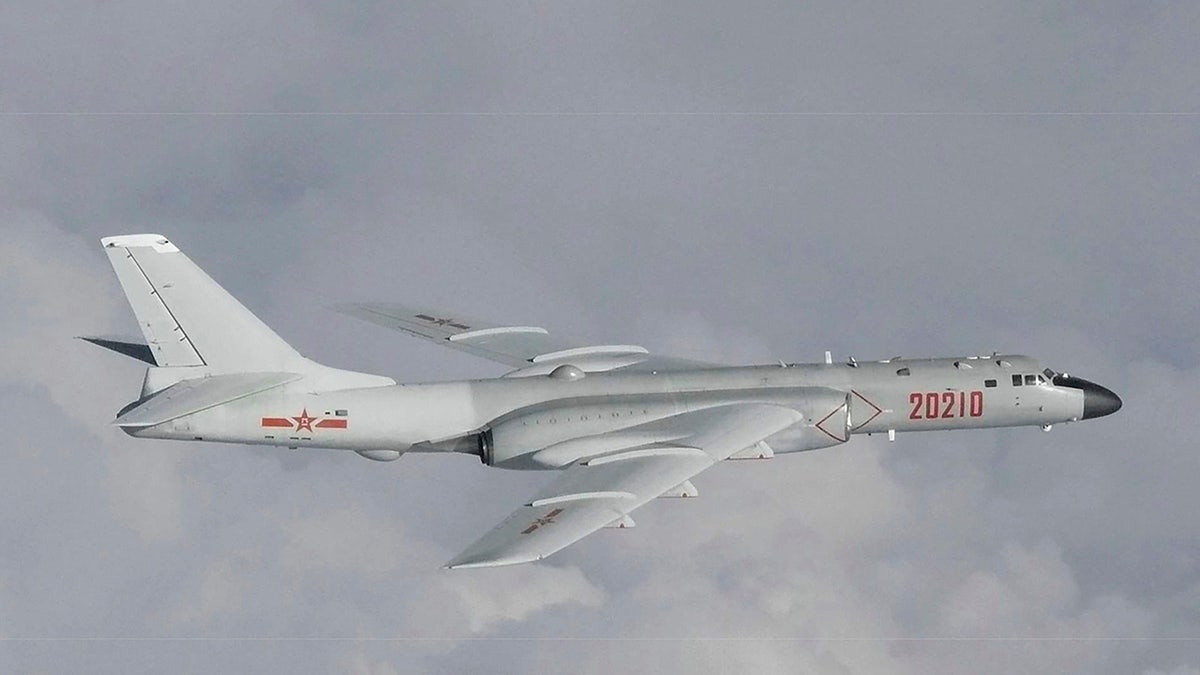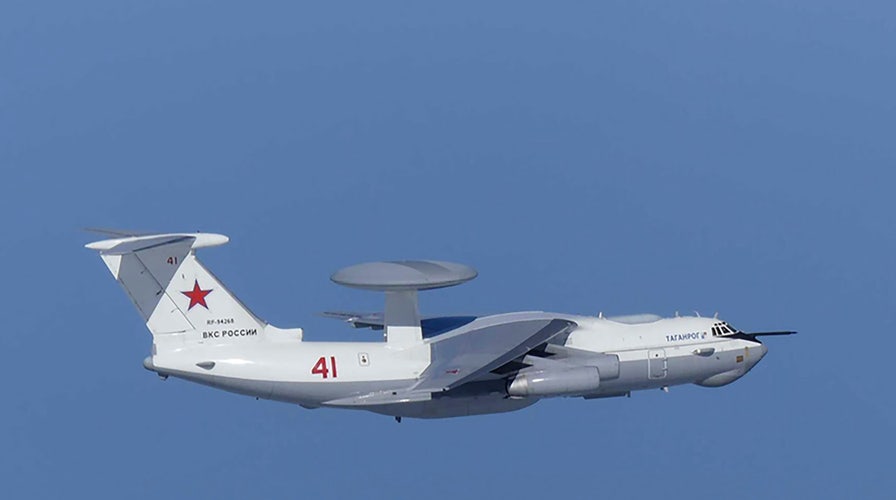Fox News Flash top headlines for July 23
Fox News Flash top headlines for July 23 are here. Check out what's clicking on Foxnews.com
Russia confirmed Tuesday that it had carried out its first-ever joint air patrol with China, an event which prompted South Korea to scramble fighter jets in response.
Moscow's defense ministry said four bombers, supported by fighter jets, patrolled a pre-planned route over "neutral waters" in the Sea of Japan and the East China Sea, according to the BBC. South Korea claimed that two Tu-95 bombers and one A-50 airborne early warning and control aircraft entered the South's air defense identification zone along with two Chinese bombers off its east coast before the A-50 intruded in South Korean airspace.
According to South Korean accounts, an unspecified number of South Korean fighter jets, including F-16s, scrambled to the area and fired 10 flares and 80 rounds from machine guns as warning shots.
SOUTH KOREA SAYS IT FIRED 360 WARNING ROUNDS AT RUSSIAN JETS WHO ENTERED ITS AIRSPACE
Seoul defense officials said the Russian reconnaissance aircraft left the area three minutes later but later returned and violated South Korean airspace again for four minutes. The officials said the South Korean fighter jets then fired another 10 flares and 280 rounds from machine guns as warning shots.
Seoul claimed that Tuesday's incident marked the first time a foreign military plane had violated its airspace since the end of the Korean War. Officials added that the Chinese planes did not intrude upon South Korean airspace.
US WARSHIP MAY HAVE DOWNED SECOND IRANIAN DRONE IN STRAIT OF HORMUZ, OFFICIALS SAY
Chinese Foreign Ministry spokeswoman Hua Chunying said she was not clear about the situation but noted the air defense identification zone is not territorial airspace and others are entitled to fly through it. She took issue when a reporter used the word “violation” to ask about China’s reported activity in South Korea’s air defense identification zone.
“I feel that given China and South Korea are friendly neighbors, you should be careful when using it [the word] because we are not clear about the situation,” she said.

This image released by Joint Staff, Ministry of Defense, shows Russian A-50 airborne early warning and control aircraft flying near the Korean-controlled island called Takeshima in Japanese Tuesday, July 23, 2019. Japan has protested to Russia for allegedly violating Japanese airspace and to South Korea for firing warning shots there. (Joint Staff, Ministry of Defense via AP)
But the commander of Russia's long-range aviation forces denied that the planes had violated South Korean airspace, though he did say that South Korean jets had fired decoy flares.
"If the Russian pilots had identified such a threat to themselves, they would have immediately given an appropriate response," Lt. Gen. Sergei Kobylash said, according to Russian news agencies.
He said South Korean military planes escorted the Russian planes over neutral waters, which he called "aerial hooliganism." Kobylash also accused South Korean pilots of performing "dangerous maneuvers," including "crossing paths with the aviation group and creating danger for the safety of the flight."
South Korea's presidential national security adviser, Chung Eui-yong, told top Russian security official Nikolai Patrushev that South Korea views Russia's airspace violation "very seriously" and will take "much stronger" measures if a similar incident occurs, according to South Korea's presidential office.

This image released by Joint Staff, Ministry of Defense, shows a Chinese H-6 bomber which they said was flying near the Sea of Japan Tuesday, July 23, 2019. (Joint Staff, Ministry of Defense via AP)
The airspace that South Korea says the Russian warplane violated is above a group of South Korean-held islets roughly halfway between South Korea and Japan that have been a source of territorial disputes between the two Asian countries. Russia isn't part of those disputes.
CLICK HERE TO GET THE FOX NEWS APP
Japan, which claims ownership over the islets, protested to South Korea for firing warning shots over Japanese airspace. South Korea later countered that it cannot accept the Japanese statement, repeating that the islets are South Korean territory. Japan also protested to Russia for allegedly violating Japanese airspace.
Fox News' Morgan Cheung and the Associated Press contributed to this report.









































